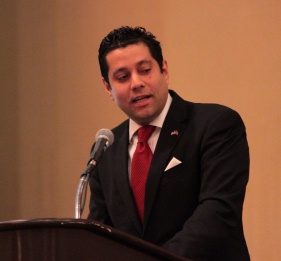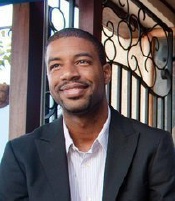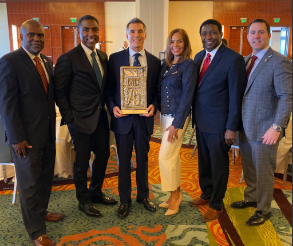T&T diplomat’s lesson: Strength in unity
By David Mullings
WASHINGTON, DC – Last year I reported from the White House Briefing for Caribbean Business Leaders organised by the Institute of Caribbean Studies based in Washington, DC, and the brainchild of Dr Claire Nelson who achieved the goal of getting successive presidents of the United States of America to proclaim that June in the USA is Caribbean American Heritage Month.
I was flattered to be invited last year and my brother and I were invited this year, but I was also invited to speak on Capitol Hill at the Caribbean Legislative Forum on Thursday, June 20, and was present at the Caribbean Youth Leadership Forum the following day at the Organisation of American States.
Other speakers at the legislative forum, which was held at the US House of Representatives, included Congressman Charles Rangel, a good friend of Jamaica; Congresswoman Maxine Waters, former chair of the Congressional Black Caucus; Congresswoman Barbara Lee; Ambassador Neil Parsan of Trinidad and Tobago; Hon Sharon Ffolkes Abrahams, Minister of State in the Jamaican Ministry of Industry, Investment and Commerce, among others.
My speech was made during the round table on domestic economic policy with a focus on access to capital.
Other speakers included Marlon Hill, a Florida-based lawyer and co-chair of the Obama campaign’s finance committee in Florida (full disclosure: his law firm does work for my companies); and Gabriel Christian, a Maryland-based lawyer with interests in the energy sector.
While it would be my pleasure to report on my speech, the most compelling speech was from Ambassador Parsan.
Trinidad and Tobago and the wider Caribbean are reaping tremendous rewards from the work of Ambassador Parsan in ways that the region may not even know.

Ambassador Dr. Neil Parsan
He made a number of profound statements on Caribbean unity. While some in Jamaica are busy talking about leaving Caricom, the ambassador is saying that integration is critical because of our small size as a region.
He said Caricom countries must realise they live in a gated community with each island representing a house in that neighbourhood.
It is therefore unwise to focus on improving only your house, and so his consultations within the diplomatic corps and the US Government are always focused on what can benefit the Caribbean, not just Trinidad and Tobago.
I am in complete agreement with the ambassador about the need for the region to act as a bloc because no country in the Caribbean can stand alone. Each is simply too small to have any clout against the USA, Canada, the EU or Latin America.
Note that the Caribbean is so small that it is lumped together with Latin America in most cases as the Latin America and Caribbean region.
The issues surrounding FATCA and tax compliance for US persons and new reporting requirements for Foreign Financial Institutions provide a perfect example.
The EU went to the US Government as a bloc, but the Caribbean was acting as if any one country was big enough to do the same. Our strength comes from unity, not from divisiveness.
In due time I hope that more ambassadors from the Caribbean will work together for the greater good instead of just for their countries and take a page out of the book of Ambassador Parsan.
I also hope that citizens of each country will move on from the history of the West Indies Federation and move Caricom toward a true integrated region.
No Caribbean island is actually an island in the political or economic sense.
Courtesy Jamaica Observer

David Mullings
David Mullings is president and CEO of Keystone Augusta and was the first Future Leaders representative for the USA on the Jamaican Diaspora Advisory Board.


